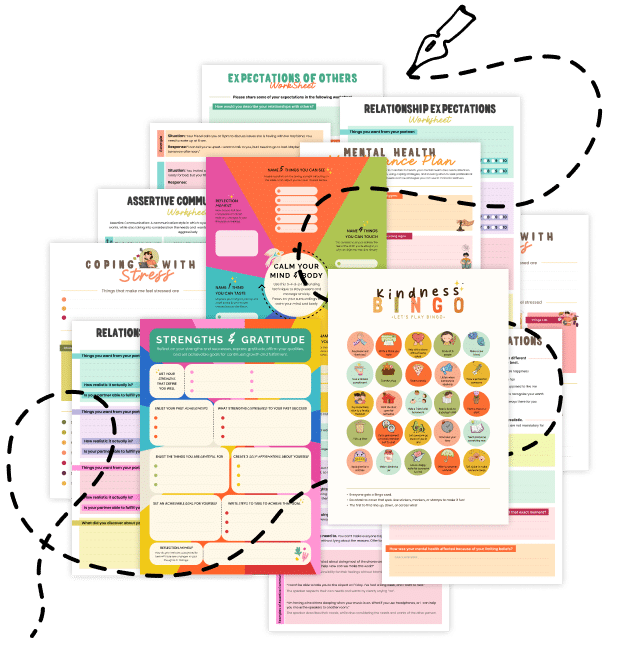20 Things About Broken Focus Recovery
Enhance your mental performance with these 20 insights on Broken Focus Recovery—what it is, why it matters, and how to bounce back when distractions disrupt your workflow. Discover practical strategies to regain concentration and boost productivity in a world full of interruptions.
1. What Is Broken Focus Recovery?
Broken Focus Recovery is the process of regaining your concentration after an interruption or distraction has disrupted your attention.
2. The Impact of Distractions
Distractions can fragment your thought process and lower productivity. Recognizing when your focus is broken is the first step toward recovery.
3. Cognitive Shifts
When your focus breaks, your brain experiences a cognitive shift that can make it challenging to resume tasks at full capacity.
4. The Cost of Interruptions
Each time you switch tasks, you pay a cognitive “tax” that can slow your momentum. Understanding these costs motivates you to minimize disruptions.
5. Environmental Factors
A cluttered or noisy workspace often contributes to broken focus. Creating a calm, dedicated area can help maintain concentration.
6. Digital Distractions
Smartphones, social media, and constant notifications are major culprits. Managing these digital intrusions is crucial for focus recovery.
7. Recognizing Early Warning Signs
Learning to identify subtle signs of distraction—like wandering thoughts or fidgeting—can help you intervene before focus is fully broken.
8. The Role of Mindfulness in Broken Focus Recovery
Mindfulness practices, such as meditation or deep breathing, can help calm your mind and restore focus quickly.
9. Quick Cognitive Resets
Simple techniques, like taking a short walk or doing a quick stretch, can serve as a reset button for your mental energy.
10. Importance of Routine
A consistent work routine minimizes abrupt changes in focus, allowing for smoother transitions back into deep work.
11. Task Prioritization
Breaking your work into smaller, manageable tasks helps maintain momentum and makes it easier to recover from interruptions.
12. Structured Breaks
Scheduled breaks, such as those used in the Pomodoro Technique, give your brain time to rest and re-engage, reducing the impact of focus breaks.
13. Physical Exercise
Regular physical activity boosts blood flow to the brain, enhancing your ability to regain focus after a distraction.
14. Nutrition and Hydration
Proper nutrition and staying hydrated support optimal brain function, which is essential for quick recovery from broken focus.
15. Sleep and Recovery
Quality sleep rejuvenates your cognitive resources, making it easier to bounce back when focus is interrupted.
16. The Power of a Reset Ritual
Developing a personal reset ritual—like a specific breathing exercise or a short meditation—can signal your brain to re-enter a focused state.
17. Embracing Imperfection
Accept that focus will occasionally break. Being kind to yourself during these moments reduces frustration and aids in faster recovery.
18. Adaptive Work Strategies
Experiment with different work strategies, such as alternating between deep work and light tasks, to keep your focus resilient.
19. Building Mental Resilience
Regular practice of focus recovery techniques builds resilience over time, helping you handle distractions more effectively.
20. Related Topics to Explore
- Task Switching Costs – Learn how the mental “tax” of shifting between tasks affects focus recovery.
- Mind-Wandering Mode – Explore how periods of unstructured thinking can both hinder and help focus.
- Default Mode Network – Understand the brain network active during mind-wandering and its role in regaining focus.
- Micro-Pomodoros – Discover shorter, more frequent focus intervals to mitigate the impact of interruptions.
- Neurotransmitter Balance – Delve into how maintaining a healthy balance of brain chemicals supports sustained attention.
Quick Tips to Boost Your Focus Recovery
- Establish a Distraction-Free Zone: Create a workspace that minimizes visual and auditory distractions.
- Schedule Regular Breaks: Use techniques like Micro-Pomodoros to structure your work and break periods effectively.
- Practice Mindfulness: Incorporate short mindfulness exercises to quickly reset your mental state.
- Stay Hydrated and Energized: Keep water and healthy snacks nearby to support brain function throughout your day.
- Reflect on Your Progress: Regularly review your focus habits and adjust your strategies for continuous improvement.
Embrace these insights and tips to master Broken Focus Recovery, empowering you to regain your concentration swiftly and elevate your productivity—even in a distraction-heavy world!
Need a Professional Workbook Design Service?
From worksheets to activities, discover thoughtfully designed tools to support your mental health journey.


